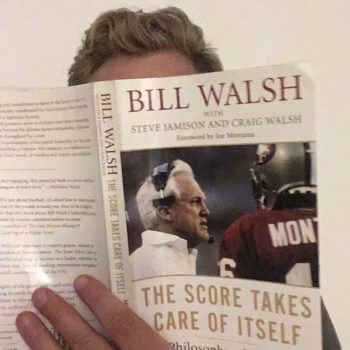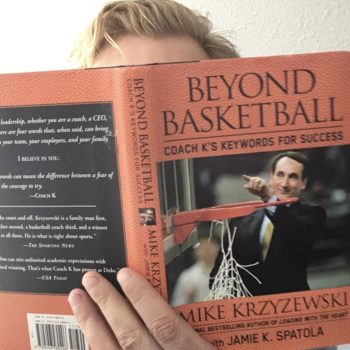
The Score Takes Care of Itself
My Philosophy of Leadership
Categories:
CTO,
Engineering Manager,
Tech Lead,
Startup Founder
How strongly do I recommend The Score Takes Care of Itself?
8 / 10
Review of The Score Takes Care of Itself
I learned about this book from The Hard Thing About Hard Things and I’m glad I read both.
This book is very similar to John Wooden’s book on leadership, talking about high standards and not just managing people but actually coaching them.
While it helps to appreciate sports, I don’t think you need any particular sports knowledge to derive value from reading this book.
Top Ideas in This Book
- Innovation is often met with ridicule
- Avoid subtlety when setting expectations from subordinates, be direct and explicit
- Care more about how you lose than if you lose
- Leaders need to establish high standards of performance and drive application throughout their team
- Beyond standards, leaders must teach their beliefs and philosophies
- Tell people that you believe in them
- The best leaders understand which situations require extraordinary effort and which do not
- Total effort does not mean total anxiety
- Successful leaders judge themselves the hardest and drive themselves to burnout
Innovation is often met with ridicule
Bill Walsh invented the West Coast Offense, actually created first during his time in Cincinnati. The majority of the NFL laughed and mocked his offensive style for not being man enough.
Then he started winning Super Bowls and a surprising thing happened. They continued mocking him.
But years later, the entire NFL came around and adopted the West Coast Offense.
As a side point for software engineers, the West Coast Offense operates much like a high performance engineering team. Consistent progress with short, highly accurate passes that ultimately puts a ton of points on the board.
Avoid subtlety when setting expectations from subordinates, be direct and explicit
First-time managers and ineffective managers often make the mistake of being too subtle when setting expectations with subordinates.
Set clear and explicit expectations. Your team will appreciate the clarity.
Care more about how you lose than if you lose
Sports offer clear winners and losers. Business is not so clear.
In software, one clear instance of losing is a project running way behind schedule. How you and your team respond to a late project speaks to the culture you as the leader have created.
Leaders need to establish high standards of performance and drive application throughout their team
Like John Wooden, Bill Walsh established and clearly communicated high standards of performance for everyone in his organization including players, coaches, and front-office staff.
As an example, Bill Walsh dictated to support and administrative staff how phones should be answered. On the surface, this sounds like micromanaging. But sometimes when stepping into a low performing organization, a leader needs to recognize that people aren’t used to an environment with high standards and need explicit direction on even small details.
Beyond standards, leaders must teach their beliefs and philosophies
Standards are the how. Beliefs and philosophies are the why.
Repeat your beliefs and philosophies over and over during 1:1s, retros, project kickoffs, and any group setting possible.
Tell people that you believe in them
Many engineers turned managers feel awkward being explicit. Beyond expectation setting, we need to embrace direct communication when telling our people that we believe in them.
A clear statement of belief and support from a respected leader elevates peoples’ work quality and focus.
The best leaders understand which situations require extraordinary effort and which do not
I hate the word sprint in software development. It never made sense to me.
Like physical training, high quality performance requires appropriate programming. You can’t always max out, lifting your heaviest weights, running the fastest, or working yourself to the bone.
When programmed properly, extraordinary effort feels enjoyable.
When programmed continuously, extraordinary effort feels exhausting.
Total effort does not mean total anxiety
I remember an episode of Seinfeld where George Costanza, a notoriously lazy worker, wanted to hide his laziness by signalling to his boss that he was working hard. So each time the boss passed by George’s office, George acted angry, flustered, and anxious.
In business, you hear about “sense of urgency.” When we say someone lacks a sense of urgency, we basically mean they demonstrate insufficient anxiety.
But total effort does not mean total anxiety. In fact, we often need to reduce anxiety to perform at a high level. In many ways a successful training program crafted by a strong leader aims at reducing performance anxiety.
Successful leaders judge themselves the hardest and drive themselves to burnout
Bill Walsh burned out. Many high performing leaders experience the same feeling of exhaustion.
Our personal identities are closely attached and often indistinguishable from our work identities. So when work does not deliver the desired outcomes, we view ourselves as failures.
And when work does go well, we often fail to recognize any achievement.




